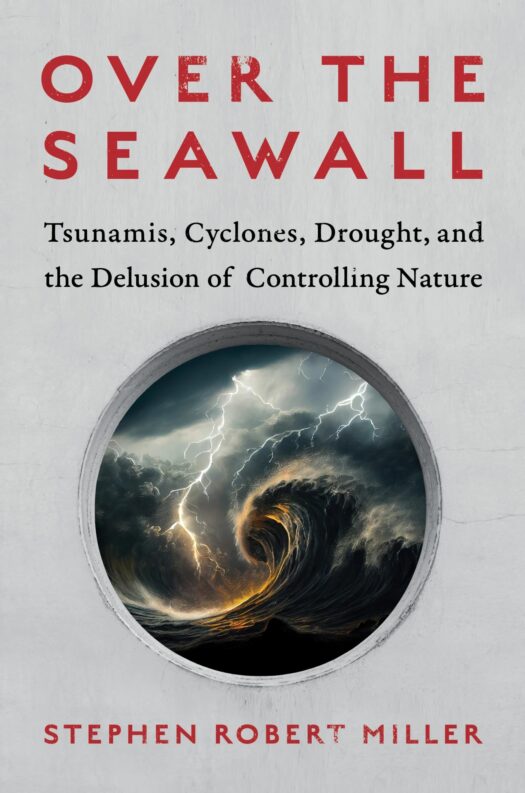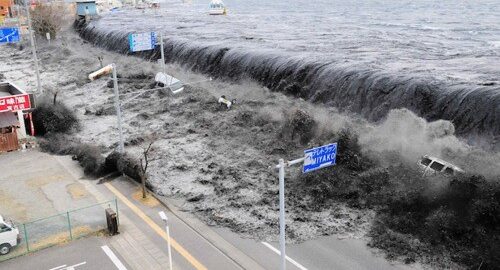Podcast: Play in new window | Download
Subscribe: Apple Podcasts | RSS
We talk with Elizabeth Flock about her book, The Furies. It follows three remarkable women — in the US, in India and in Syria — who took justice into their own hands to defend themselves, other women and their communities against abuse.
Then, environmental journalist Stephen Robert Miller tells us about his book, Over The Seawall: Tsunamis, Cyclones, Drought, And The Delusion Of Controlling Nature. He dives into the deep end of disaster mitigation gone wrong. From Arizona’s drought dilemmas to Japan’s daunting seawalls, we hear how “solutions” can turn into bigger problems.
Writers Voice— in depth conversation with writers of all genres, on the air since 2004.
Find us on Facebook at Writers Voice with Francesca Rheannon, on Instagram and Threads @WritersVoicePodcast or find us on X/Twitter @WritersVoice. Read transcripts at the Writer’s Voice Substack.
Key words: Stephen R. Miller, Elizabeth Flock, Nonfiction, domestic violence, women’s rights, global warming, climate change, book podcast, author interview
Read more: Women, Vengeance, and Justice: Elizabeth Flock, THE FURIES. Plus, Stephen Robert Miller, OVER THE SEAWALLThe Furies: Women, Vengeance & Justice
In Ancient Greek mythology, the Furies were Goddesses who came out of the ground to exact vengeance on men. In the plays of Sophocles, they were the daughters of Darkness and of Gaea (The Earth). According to Euripides. They were three in number.

And that’s the number of the modern day Furies in Elizabeth Flock’s book, The Furies. They include a young mother from Alabama who shot and killed her rapist after an assault where he threatened to kill her; a Dalit (what used to be called “Untouchable”) woman in India who organized a band of women to fight back against gender-based violence; and finally, a Kurdish Syrian warrior in a thousands-strong all-female militia that battled ISIS in Syria.
The Furies explores these women’s lives with nuance and compassion, not shrinking from the moral issue of responding to violence with violence, but also showing that these ultimately ordinary women did what they felt they had to do to fight back against oppression.
About the Author
Elizabeth Flock is an Emmy Award–winning journalist whose work has been featured in the New Yorker, the New York Times, and the Atlantic, among other outlets. She is the host of the podcast Blind Plea, about criminalized survival. Her first book, The Heart Is a Shifting Sea, won a Nautilus Book Award.
Unintended Consequences of Climate & Disaster Mitigation

Stephen Robert Miller’s compelling narrative Over the Sea Wall takes us on a journey through the misguided attempts at mitigating natural and climate disasters, emphasizing how our best-intended efforts can backfire and lead to greater problems. In this conversation with the author, we explore the themes of maladaptation, technological interventions, and the pressing need for sustainable solutions in the face of climate change.
Two of the examples in Over The Seawall feature responses to climate disruption: one is a cautionary tale about Arizona’s flawed attempts to save its water supplies as climate change causes mega droughts in the Southwest. The other is a positive example of how communities in Bangla Desh are countering the impact of increased floods. The third example is the source of the book’s title: it’s about Japan’s ham-fisted response to the tsunami of 2011, which killed nearly 20,000 people.
About the Author
Stephen Robert Miller is an award-winning science journalist whose work has appeared in National Geographic, The Guardian, Discover Magazine, Audubon, and many others. He was a Ted Scripps Fellow at the University of Colorado’s Center for Environmental Journalism.

